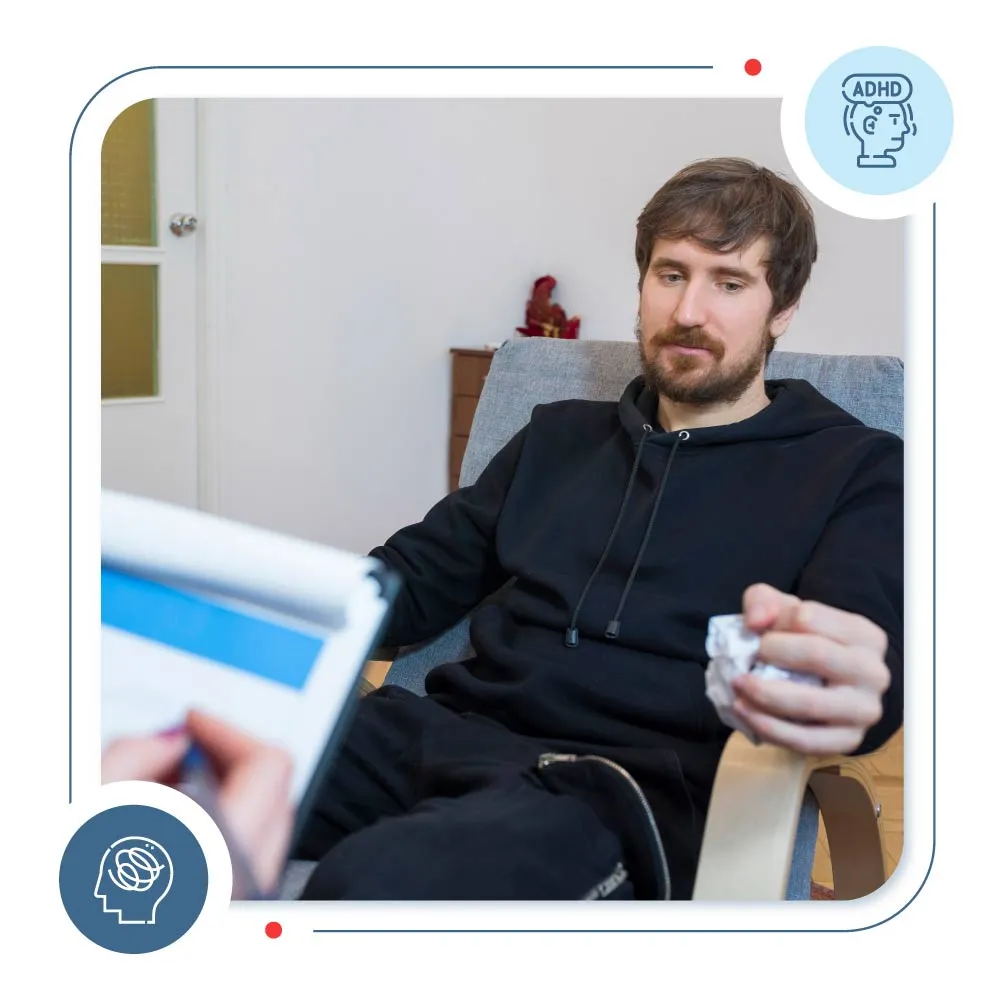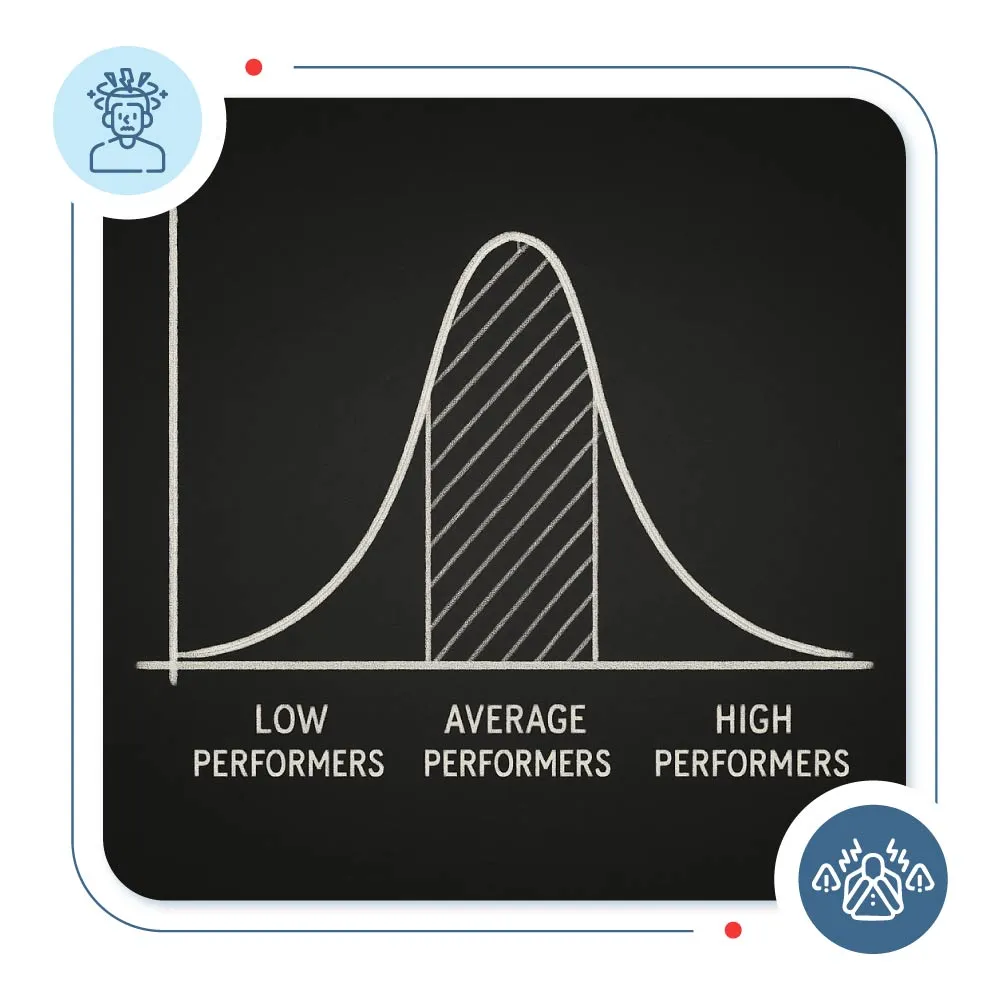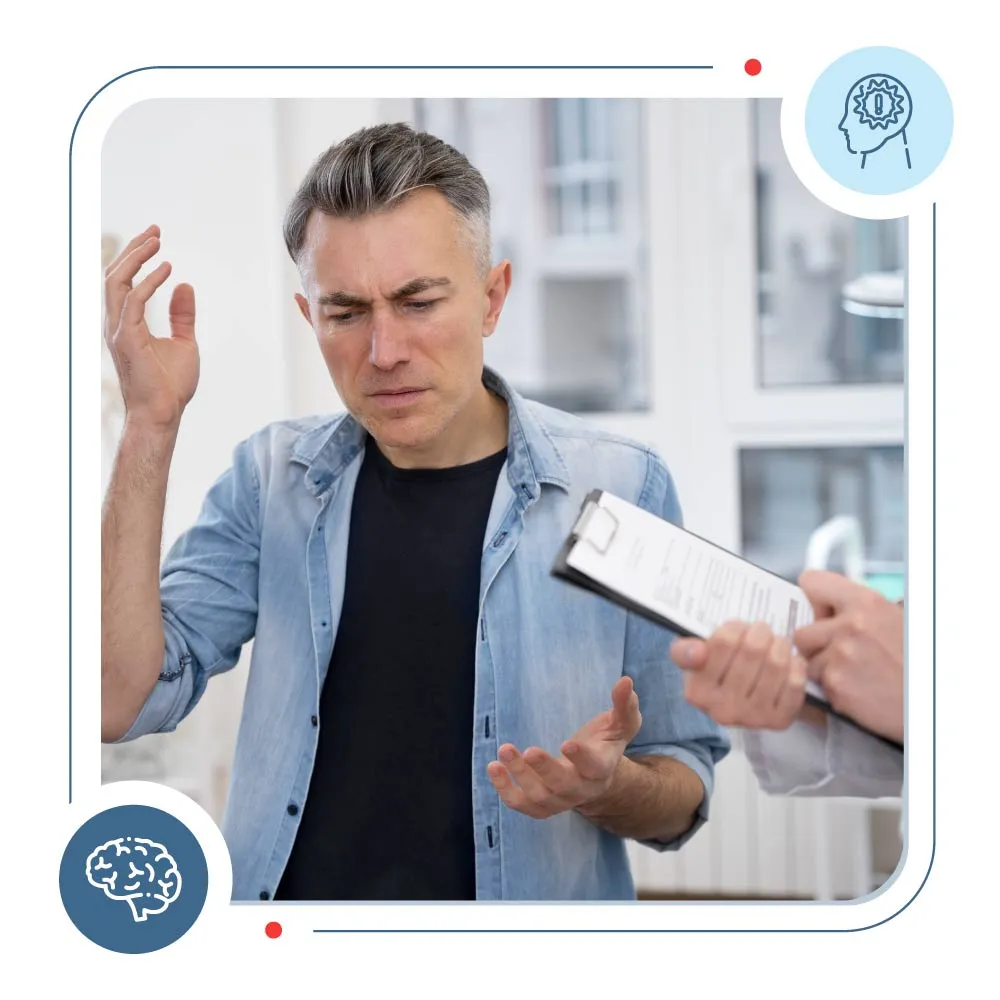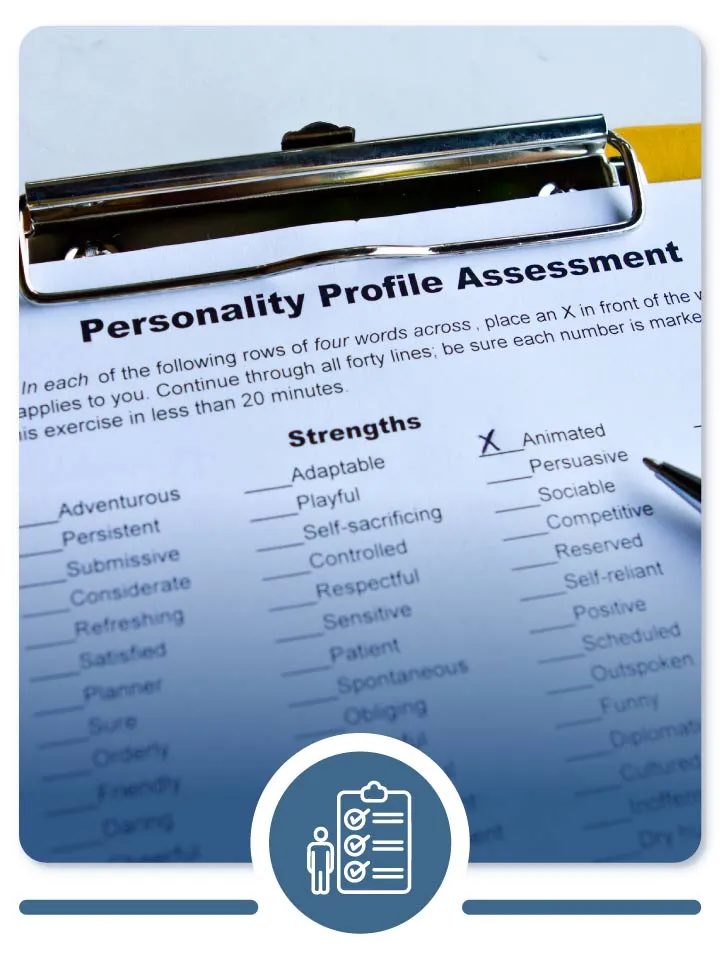ADHD Conner's Testing

What is ADHD Conner's Testing?
Conner’s Adult ADHD Rating Scale (CAARS or Conner’s test) is a gold-standard evaluation method for assessing ADHD in adults. It’s a self-reporting questionnaire that evaluates potentially ongoing ADHD symptoms while measuring their frequency and intensity. This evidence-based test measures various aspects of ADHD symptoms, such as hyperactivity, impulsivity, or inattention, across different scenarios.
Mid Cities Psychiatry offers you reliable ADHD Conner testing in Euless that provides qualitative analysis of your mental health. Our skilled clinicians use the Conners ADHD Rating Scale to create complete Conners Reports that detail how ADHD symptoms affect your daily life based on symptom severity.

How is Conner’s Test for ADHD Conducted?
You can take the ADHD Conner test yourself, or it can be completed with the help of our expert clinicians. Conner’s ADHD assessment is often categorized into two versions with a specific list of questions or statements you need to answer while being evaluated.
Long Version
It comprises 66 items and provides a comprehensive evaluation of your ADHD symptoms across multiple behavioral domains. Long-version Conner testing thoroughly covers the four-factor model of ADHD symptoms.
Short Version
It has 26 items that help us make a quick assessment of your ADHD symptoms. Nonetheless, the short version maintains the four-factor structure of the full version of Conner’s Testing.
The ADHD assessment, using both the short and long versions of Conners Testing, bases its evaluation on the four-factor model of ADHD symptoms. The framework has further subscales, which incorporate the following elements
- Symptoms of inattention
- Symptoms of Hyperactivity
- Impulsive symptoms
- Problems relating to self-concept



Scoring of Conner’s ADHD Rating Scale
You should always have your Conner’s test score interpreted by a qualified professional. The final test score depends on each of its constituent items and is generally based on raw scores and T-scores. The raw scores represent the initial questionnaire results, depicting the number of responses that match particular symptoms. T-scores, on the other hand, are standardized scores that compare your results to a general population sample. A T-score of more than 60 typically indicates the likelihood of clinically significant ADHD symptoms.
However, we do not make a final, definitive diagnosis without further psychiatric evaluation.

Why Choose Us?
Mid Cities Psychiatry is one of the best mental health treatment centers in Euless. With recent advances, our approach to mental health care has become more precise than ever. We establish an environment dedicated to openness where you can freely express your experience. If you suspect you have ADHD, reach out to us for a thorough evaluation. You are our top priority. We make every step of your therapeutic journey easy, whether you’re new or seeking follow-up care.
Take the First Step Towards Understanding Your ADHD!
Book your Conner’s ADHD test today at Mid Cities Psychiatry for a comprehensive and accurate evaluation. Our expert clinicians are here to guide you on your path to better mental health. Our dedication to clinical excellence alongside personalized patient care guarantees that every individual experiences meaningful attention in their treatment process.


FAQs
01
How accurate is Conner’s ADHD Test?
While commonly performed for ADHD screening, Conner testing is not a highly sensitive tool to make an exact diagnosis, with an overall accuracy of 78%. This means that it can give false positive or negative results.
02
What are the limitations of Conner Testing?
The main limitation of Conner testing is its subjective nature, as it heavily relies on self-reporting information that can be influenced by personal bias and memory recall. Also, it cannot evaluate any underlying medical conditions that contribute to similar symptoms.
03
Can I take an online Conner's Test?
You can take the online test, which incorporates the latest versions of Conner tests. However, it’s always advisable to seek professional support for a better interpretation of your results.
Real Stories, Real Recovery










